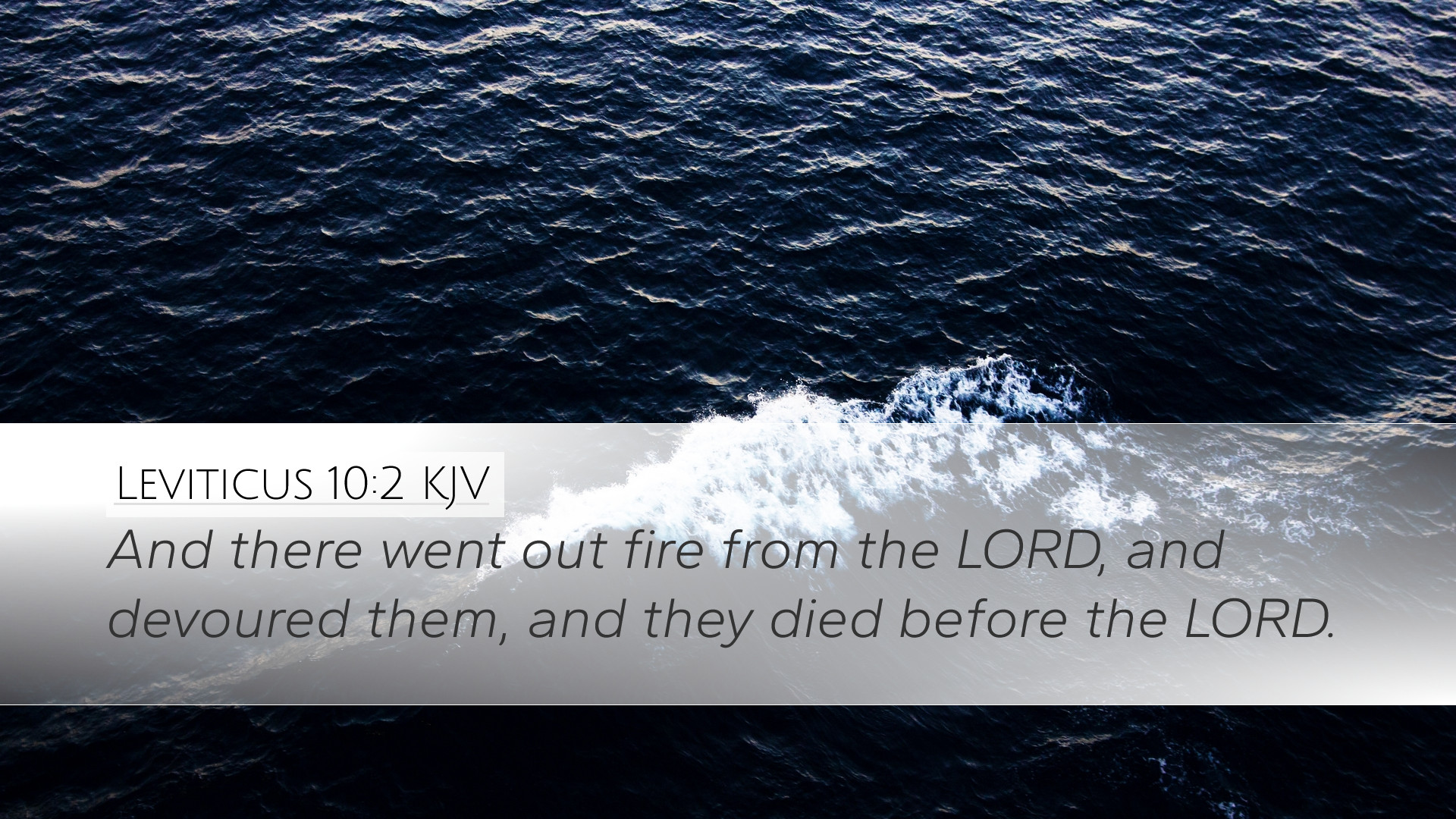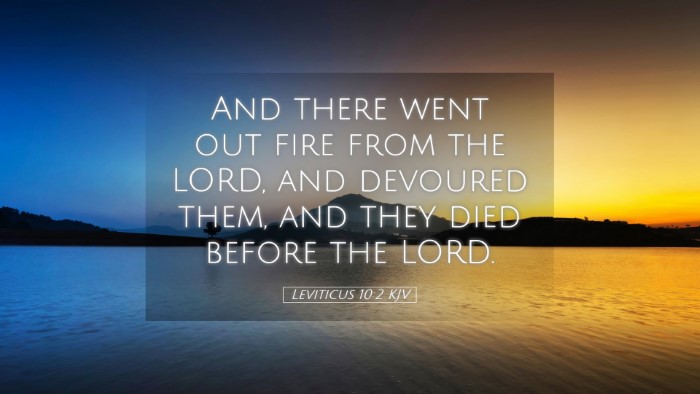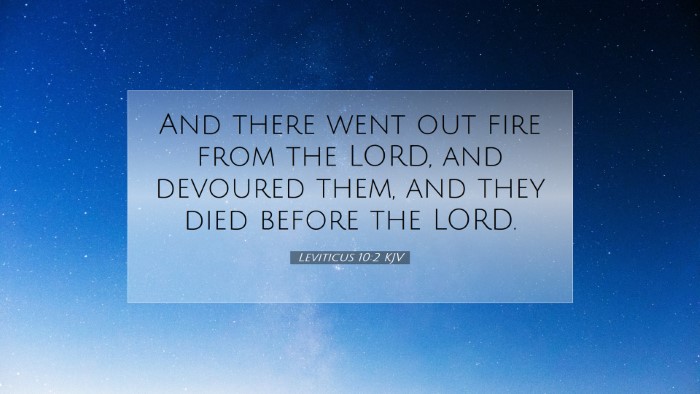Commentary on Leviticus 10:2
Leviticus 10:2 states, "And there went out fire from the Lord, and devoured them, and they died before the Lord." This verse illustrates a profound moment in the narrative of the Israelites, emphasizing the holiness of God and the gravity of approaching Him without reverence.
Contextual Background
This event follows closely the ordination of Aaron and his sons as priests, where they were instructed on how to conduct themselves in the Holy Place. The appearance of divine fire signifies God's approval of certain offerings, but in this instance, it also serves as a direct judgment.
Insights from Public Domain Commentaries
Matthew Henry's Commentary
Matthew Henry emphasizes the seriousness of Nadab and Abihu's actions, noting that they offered "strange fire" before the Lord. This implies that they deviated from God's explicit instructions. Henry asserts that God's actions in consuming them were punitive, aimed at underscoring the importance of adherence to divine commandments, particularly in worship.
Key Takeaway: The Lord's holiness demands respect and obedience, particularly from those in positions of spiritual leadership.
Albert Barnes' Notes on the Bible
Albert Barnes elaborates on the nature of the fire that consumed Nadab and Abihu, suggesting it was a miraculous fire from heaven that symbolized God's presence. Barnes notes that the failure to follow divine mandates led to their demise, highlighting a pattern in Scripture where serious consequences follow disobedience. He argues this event is a sobering reminder of the need for proper worship.
Key Takeaway: Worship must be conducted according to God's specifications, and failure to do so can result in severe repercussions.
Adam Clarke's Commentary
Adam Clarke provides a systematic breakdown of the implications of this event. He points out that Nadab and Abihu were not just any Israelites; they were among the highest priestly ranks with direct access to God. Clarke indicates that their offering of unauthorized fire signified a grievous misstep in their roles as spiritual leaders. He urges readers to understand the responsibilities that come with spiritual authority.
Key Takeaway: Leaders in the faith community bear the weight of their actions, and their approach to God should reflect utmost reverence and genuine intention.
Theological Implications
This verse has significant theological implications concerning the nature of God, holiness, and judgment. The consuming fire serves as a manifestation of God's presence, affirming that He is a consuming fire (Hebrews 12:29). The death of Nadab and Abihu serves as a cautionary tale about the seriousness with which one must approach divine service and worship.
Holiness of God
- The holiness of God is central in this scripture; it underscores His absolute separation from sin and the expectation of purity in those who serve Him.
- Hebrews 12:14 advises believers to pursue holiness, echoing the reverence required in God’s presence.
Divine Judgment
- The event depicts how God's justice operates. Nadab and Abihu's deaths denounce willful disobedience.
- This affirms that God’s grace does not nullify His holiness and justice; rather, they coexist in harmony in His divine nature.
Implications for Worship
- Worship should always be rooted in biblical truth, reflecting God's revealed word.
- Contemporary applications might involve examining our own forms of worship and ensuring they are biblical and respectful of God’s holiness.
Conclusion
Leviticus 10:2 serves as a profound reminder of God’s holiness and the seriousness with which leadership roles in the faith community should be approached. As seen through the lenses of Matthew Henry, Albert Barnes, and Adam Clarke, this passage is rich with lessons about obedience, leadership, and the nature of God. For pastors, students, and theologians, it underscores the necessity for vigilance in worship and a deep understanding of divine holiness.


